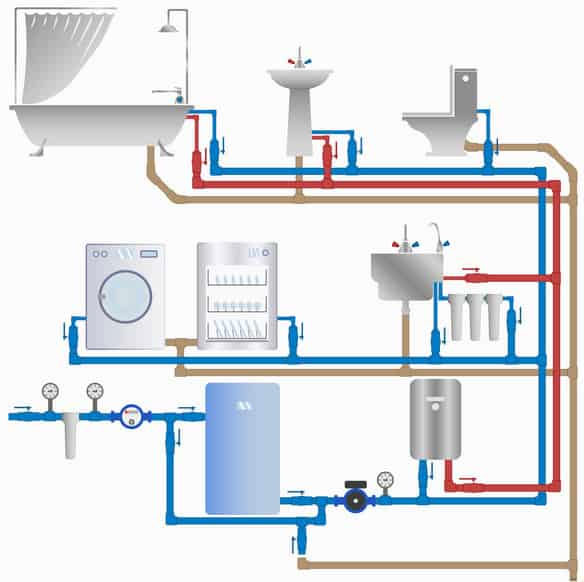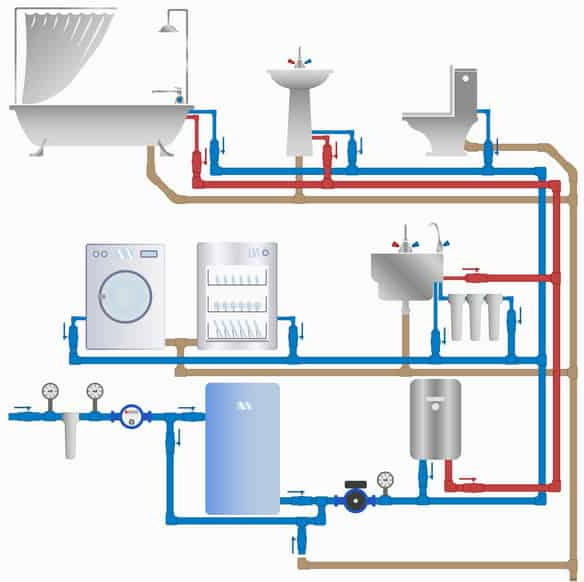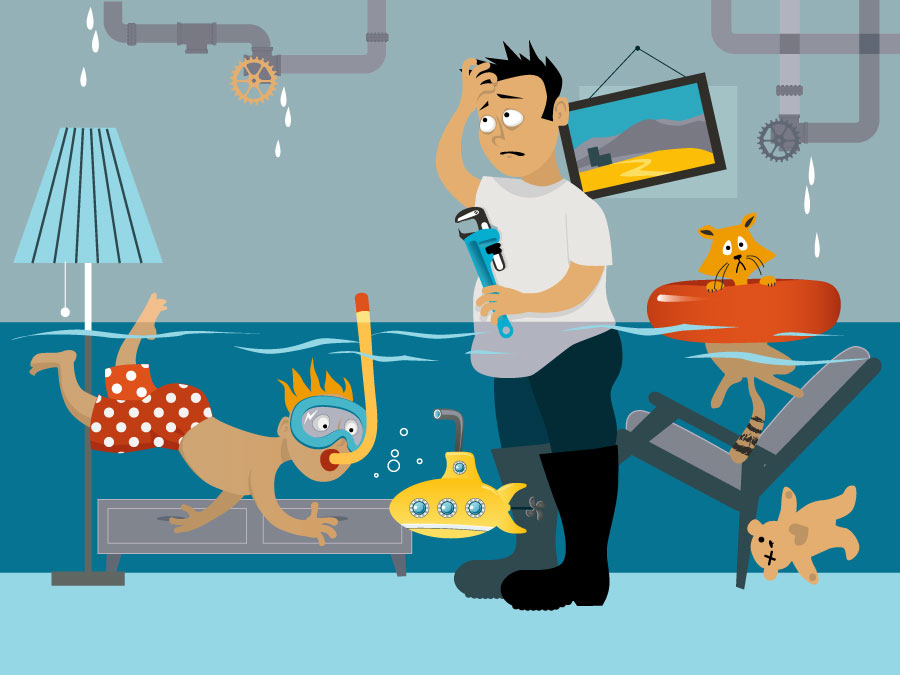
Plumbing Systems – 10 Useful Things You Should Know
By the time most people discover an issue with your plumbing system, it may already too late. Burst pipes and clogged drains can cause enormous damage, so it is vital to understand your plumbing system and identify minor problems before they become big ones.
Here are ten essential things you should know about your plumbing system:
1. Water pressure
One of the other aspects of plumbing you need to pay attention to is water pressure. Generally speaking, in a typical home, the water pressure should be less than 80 psi.
Too much water pressure could lead to leaks in the plumbing, worn seals, and damage to fixtures. Your washing machine, ice maker, dishwasher, and other appliances that rely on a water connection could even be damaged.
2. Water quality
Does your water seem to taste, smell or look strange? Water supply issues or plumbing issues on your property could be causing the problem. The water can be dirty or brown, cloudy or milky and have strange tastes like chlorine or dirt or smells like petrol and paint.
If you are experiencing any of these issues, it is imperative that you contact a licenced plumber to determine the problem and only drink bottled water in the meantime.
4. Don’t ignore leaks
When pipes burst, especially if they go unnoticed, walls, carpets, floors, and ceilings can also be damaged. It is also possible that a small leak can cause corrosion in your pipes, requiring the replacement of your entire plumbing system.
5. What does water pooling in my yard mean?
A puddle in your yard or wet spots are often the first signs of a broken underground pipe just underneath the ground. Left unattended, this can lead to major structural damage to your home and property.
5. How to shut off water to appliances, sinks, and toilets
All sinks, toilets, showers, and appliances that use water have shutoff valves to be repaired locally without flooding.
You must explore your home and find every single one of them. Usually, you’ll find them hidden behind an appliance, or they will be found in a nearby cabinet. Make sure that you can shut them off if needed. This can be especially important if a tap or other part of your plumbing starts gushing water.
6. You Need To Regularly Clean Drains So They Don’t Become Clogged
Taking care of what you put into drains will prevent clogs or slow drains. Four things drains struggle with: grease, coffee grounds, hair, and soap scum. Keep these items out of drains as much as possible.
Make sure the sink is thoroughly rinsed after each use with hot water. The hot water keeps oils from forming on the inside of pipes, making pipes clog more easily and causing drains to be sluggish.
Occasionally, flush your drain with hot water and baking soda. Cleaning your drain pipes with baking soda leaves them smelling nice and clean as it also absorbs foul odours.
7. Understand the role sink aerators play in plumbing systems
The tap aerator is also known as a flow regulator. Aerators are small attachments inserted into the end of the tap, or that can be screwed into the existing spout and placed on the end.
By mixing the water with air, the water bypasses the tap and decreases the water flowing through it. Consequently, the water pressure will remain the same.

If you have these installed, they need to be periodically replaced. However, if you haven’t got them installed, they will save you a lot of water and money, so it is recommended that you get them fitted.
8. Know where your water main is for an emergency
Plumbing emergencies, such as burst pipes, can be costly and result in a large water bill. It is imperative that you turn off your water at the mains to minimise the damage caused before a plumber arrives.
Generally, your main water supply is found outside near your water meter, near your home’s boundary, or near a garden tap.
9. How to care for your toilet
You mustn’t throw anything into the toilet that doesn’t belong there. A blocked toilet can be caused by cotton swabs, baby wipes, paper towels, and more.
Ensure your toilet is functioning correctly as well. For example, one or more parts in the toilet tank are likely to need replacing when the toilet runs.
A toilet leak can sometimes be so small that it doesn’t make a sound. By filling the toilet tank with food colouring, you can identify these invisible leaks. Check the toilet bowl’s water after half an hour. Colour determines a leak.
10. Always have the number of a licenced emergency plumber handy
Things can go wrong at any time of day or night, and you need to be able to access help quickly in an emergency. When a pipe has burst, you don’t have time to be researching the best plumbers in your area.
Do your homework ahead of time and have their number ready for an emergency. All Day Plumbing provides reputable emergency plumbing services across Sydney, and you can reach us on 1300 301 354.
